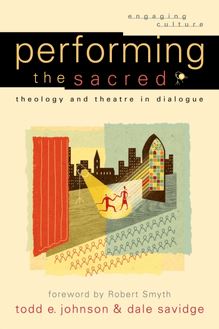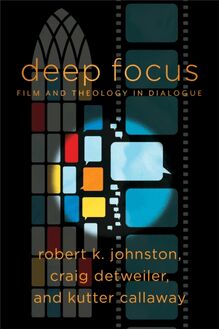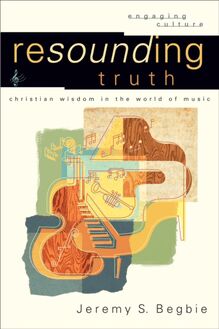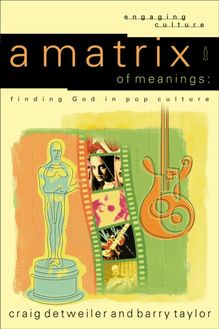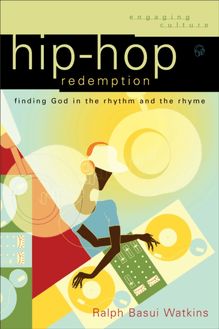-
 Univers
Univers
-
 Ebooks
Ebooks
-
 Livres audio
Livres audio
-
 Presse
Presse
-
 Podcasts
Podcasts
-
 BD
BD
-
 Documents
Documents
-
- Cours
- Révisions
- Ressources pédagogiques
- Sciences de l’éducation
- Manuels scolaires
- Langues
- Travaux de classe
- Annales de BEP
- Etudes supérieures
- Maternelle et primaire
- Fiches de lecture
- Orientation scolaire
- Méthodologie
- Corrigés de devoir
- Annales d’examens et concours
- Annales du bac
- Annales du brevet
- Rapports de stage
La lecture à portée de main
Vous pourrez modifier la taille du texte de cet ouvrage
Découvre YouScribe en t'inscrivant gratuitement
Je m'inscrisDécouvre YouScribe en t'inscrivant gratuitement
Je m'inscrisEn savoir plus
Vous pourrez modifier la taille du texte de cet ouvrage
En savoir plus

Description
Sujets
Informations
| Publié par | Baker Publishing Group |
| Date de parution | 01 octobre 2011 |
| Nombre de lectures | 0 |
| EAN13 | 9781441238146 |
| Langue | English |
| Poids de l'ouvrage | 1 Mo |
Informations légales : prix de location à la page 0,0576€. Cette information est donnée uniquement à titre indicatif conformément à la législation en vigueur.
Extrait
Engaging Culture
W illiam A. D yrness and R obert K. J ohnston , series editors
The Engaging Culture series is designed to help Christians respond with theological discernment to our contemporary culture. Each volume explores particular cultural expressions, seeking to discover God’s presence in the world and to involve readers in sympathetic dialogue and active discipleship. These books encourage neither an uninformed rejection nor an uncritical embrace of culture, but active engagement informed by theological reflection.
Start Reading
© 2011 by Ralph Basui Watkins
Published by Baker Academic
a division of Baker Publishing Group
P.O. Box 6287, Grand Rapids, MI 49516-6287
www.bakeracademic.com
Ebook edition created 2011
All rights reserved. No part of this publication may be reproduced, stored in a retrieval system, or transmitted in any form or by any means for example, electronic, photocopy, recording without the prior written permission of the publisher. The only exception is brief quotations in printed reviews.
ISBN 978-1-4412-3814-6
Library of Congress Cataloging-in-Publication Data is on file at the Library of Congress, Washington, DC.
Scripture quotations are from the Holy Bible, New International Version® NIV®. Copyright © 1973, 1978, 1984, 2011 by Biblica, Inc.™ Used by permission of Zondervan. All rights reserved worldwide. www.zondervan.com .
This work is dedicated to the love of my life, my wife Dr. Vanessa C. Watkins.
You have been my rhythm, my rhyme, and the reason I live. I love you to life.
Thanks for always believing in me and encouraging me to mix, remix, and write.
Cover
Series
Title Page
Copyright Page
Dedication
Introduction: The Mix and the Remix
1: When Did You Fall in Love with Hip-Hop? My Story and the Story of Hip-Hop
An Extended Track
Track 1: Confronted by Tupac
Track 2: Nod Your Head: Good Morning, Hip-Hop, “I Feel You”
Track 3: Interlude: Moving In and Out
Getting in Touch with Hip-Hop
2: I Said a Hip-Hop : A Snapshot of Hip-Hop History
This Is Too Much for One CD
Track 1: Who Is Yo’ Baby’s Daddy?
Track 2: Is That Baby Walking?
Track 3: So What Yo’ Baby Say?
Track 4: Everybody in the House Say Ahhhh
Track 5: That Baby Done Run in the Streets
Track 6: I See You
Track 7: “Walk This Way”
Track 8: It’s Golden: Fight the Power
Born in the USA
Getting in Touch with Hip-Hop
3: R U Still Down? Hip-Hop Culture as an Extension of the Blues
Track 1: Hip-Hop as a Lament
Track 2: The Roots and Contextualization of the Message in “The Message”: The Story and Storyteller
Track 3: The Message in Hip-Hop Is “The Message”: What Is the Message in “The Message”?
Track 4: The Creation and the Ground of Hip-Hop: An Inner City Built on Inequity
Track 5: Hip-Hop and Its Continuation of African American Theomusicological History
Track 6: Unpacking the Story Structure of Hip-Hop
Track 7: The Blues in Hip-Hop from Moses to Joseph
Getting in Touch with Hip-Hop
4: I Used to Love Her and I Still Love Her : Loving the Broken Beauty of Hip-Hop
Common Sense of Common: Whose Side Are You On?
Track 1: I Ain’t on No Side: I Am Hip-Hop
Track 2: It Feels Good: Developing a Hip-Hop Aesthetic
Track 3: Listening to the Dirty without Being Dirty: The Fanatic Critic
Track 4: Suicidal Thoughts: Being Perplexed While in the Moment
Track 5: Pimps Up, Hos Down: When Hip-Hop Goes Too Far
Track 6: Push It: Women in Hip-Hop
Track 7: Hustlin’: Brothas and Sistas Caught in the Middle
Getting in Touch with Hip-Hop
5: “Slippin’ and Slidin’ I’m about to Give Up” : The Theological Truth in the Story
Who Listens to DMX?
Track 1: Can the Words of DMX Be a Type of Sacred Text or Word That Sets People Free?
Track 2: It’s Dark and Hell Is Hot: Truth in the Struggle of the Story
Track 3: Looking Back at the Word through the Word
Track 4: A Man Who Never Was a Boy
Track 5: The Nightmare of the Dream
Track 6: This Is for My Dogs: A Closing Prayer
What If God Is Using DMX and Hip-Hop?
Getting in Touch with Hip-Hop
6: God Skipped Past the Church : A Hip-Hop Theology and a Hip-Hop Theologian
Intro: What Did God Say?
Track 1: “Everything Man”
Track 2: “NY Weather Report”
Track 3: “Hostile Gospel Pt. 1 (Deliver Us)”
Tracks 4 and 5: “Say Something” Featuring Jean Grae and “Country Cousins” Featuring UGK and Raheem DeVaughn
Track 7: “Eat to Live”
Track 10: “Give ’Em Hell” Featuring Coi Mattison and Lyfe Jennings
Track 19: “Hostile Gospel Pt. 2 (Deliver Me)” Featuring Sizzla
Track 20: “The Nature” Featuring Justin Timberlake
Bonus Track: The Essence of Hip-Hop Theology
Getting in Touch with Hip-Hop
7: The Miseducation of Lauryn Hill : A Socio-Theological Critique of Hip-Hop
So What Now?
Track 1: Do You See What I Hear?
Track 2: Who Dat Talkin’ ’Bout Hip-Hop?
Track 3: The Miseducation of Hip-Hop: Introducing a Feminist Critique
Track 4: Lost One with Lost Souls: Is Hip-Hop Selling Soul or Has Hip-Hop Souled Out?
Track 5: Forgive Them, Father: Forgiveness and Hip-Hop
Track 6: Correcting the Miseducation in Hip-Hop and of the Hip-Hop Generations: Between Motown and Def Jam
Track 7: To Zion or Hell?
Getting in Touch with Hip-Hop
Conclusion: From Gil Scott-Heron to Mos Def
I Still Love Her
Track 1: Message to the Messengers: A Preacher and Hip-Hop
Track 2: Finding Forever: A Theologian and Hip-Hop
Track 3: The Doctor’s Advocate: A Sociologist and Hip-Hop
Track 4: Murder Was the Case That They Gave Me: A Defender of Hip-Hop
Track 5: Get Free or Die Trying versus Get Rich or Die Trying: Where Do We Go from Here Chaos or Community?
Track 6: God’s Sons and Daughters: Redeeming Hip-Hop or Will Hip-Hop Redeem Us?
Notes
Bibliography
Index
About the Author
Back Cover
As we begin our move into the culture of hip-hop, I ask that you walk with me and try, at least for a minute, to put your judgment in check as we go down this road. I ask for your patience, because it will allow you to hear what otherwise you might miss. Michael Dyson calls this suspending of judgment “ethical patience.” To have ethical patience, the listener/reader attempts to empathize with the formidable array of choices, conflicts, and dilemmas that hip-hop is faced with. A person with ethical patience does not condemn hip-hop without first seeking to understand hip-hop and the hip-hop generation. [1] I invite you to ride with me as we take a journey in this book through the storied world of hip-hop. As you ride through the hip-hop story, you will see, hear, and feel the truth in the story. Toward the end of the text, I provide a set of lenses to help you make evaluative judgments of hip-hop culture that are linked to biblical principles.
The central question in this work is, how is hip-hop redemptive? In this question, I am not trying to redeem hip-hop. Rather, I want to argue that there is something inherently redeeming within hip-hop culture. To this end, I am claiming that there is a power in hip-hop and that it has theological resources.
Jon Michael Spencer said that all popular music is theological and coined the term theomusicology to denote his approach to interpreting musical traditions. Popular music is theological, Spencer says, because religion is “all-pervasive in culture.” People are “inescapably” and naturally religious; we naturally ask and reflect on ultimate questions. Popular music reveals how people “ponder myriad vital questions that arise out of our sense of finiteness.” Therefore, popular music provides a truer window into the human soul and reveals “a more honest religious discourse.” [2] Spencer is suggesting that popular music is “truer” or more honest than what is commonly referred to as Christian or religious music. David Fillingim adds to the observation of Spencer when he says, “Popular music reflects the religious imagination unfettered by the chains of doctrinal propriety.” [3] These are bold claims, but they have merit, and this text will tease out the merit of these claims.
James Cone, in his book The Spirituals and the Blues , [4] and David Fillingim, in his book Redneck Liberation , have both explored what Spencer suggests. This present book is yet another effort in that direction. I am seeking to find the redemptive power in hip-hop culture by making seven distinct moves in the following seven chapters. Each chapter title is influenced by a famous part of hip-hop culture. This cultural artifact is part name and part inspiration for the chapter and influences the direction of the chapter. These titles are important and should serve as key breaks as we mix it up.
In chapter 1, “When Did You Fall in Love with Hip-hop? My Story and the Story of Hip-Hop,” I share my struggle with hip-hop culture and the questions that birthed the project that led to this book. I start with my story because it is important to understand the writer so as to put his or her reflections in context. Chapter 2, “I Said a Hip-Hop: A Snapshot of Hip-Hop History,” provides an introduction to hip-hop culture. It outlines a brief history of hip-hop, with reference to major works of and on hip-hop. The goal of this chapter is to introduce you to hip-hop while pointing you to the major hip-hop cultural and scholarly artifacts. You are encouraged to experience the artifacts mentioned in this chapter as well as those listed at the end of each chapter. Chapter 3, “R U Still Down? Hip-Hop Culture as an Extension of the Blues,” contends that hip-hop culture and rap music didn’t fall from the sky. Other ethnic groups have been a part of the hip-hop culture and adopted it, but hip-hop is still considered a child of the African American arts community. This chapter charts the history of African American music culture while making a direct link with the blues, rhythm and blues, and gospel, as these forms live on in hip-hop and rap.
Chapter 4, “I Used to Love Her and I Still Love Her: Loving the Broken Beauty of
-
 Univers
Univers
-
 Ebooks
Ebooks
-
 Livres audio
Livres audio
-
 Presse
Presse
-
 Podcasts
Podcasts
-
 BD
BD
-
 Documents
Documents
-
Jeunesse
-
Littérature
-
Ressources professionnelles
-
Santé et bien-être
-
Savoirs
-
Education
-
Loisirs et hobbies
-
Art, musique et cinéma
-
Actualité et débat de société
-
Jeunesse
-
Littérature
-
Ressources professionnelles
-
Santé et bien-être
-
Savoirs
-
Education
-
Loisirs et hobbies
-
Art, musique et cinéma
-
Actualité et débat de société
-
Actualités
-
Lifestyle
-
Presse jeunesse
-
Presse professionnelle
-
Pratique
-
Presse sportive
-
Presse internationale
-
Culture & Médias
-
Action et Aventures
-
Science-fiction et Fantasy
-
Société
-
Jeunesse
-
Littérature
-
Ressources professionnelles
-
Santé et bien-être
-
Savoirs
-
Education
-
Loisirs et hobbies
-
Art, musique et cinéma
-
Actualité et débat de société
- Cours
- Révisions
- Ressources pédagogiques
- Sciences de l’éducation
- Manuels scolaires
- Langues
- Travaux de classe
- Annales de BEP
- Etudes supérieures
- Maternelle et primaire
- Fiches de lecture
- Orientation scolaire
- Méthodologie
- Corrigés de devoir
- Annales d’examens et concours
- Annales du bac
- Annales du brevet
- Rapports de stage

